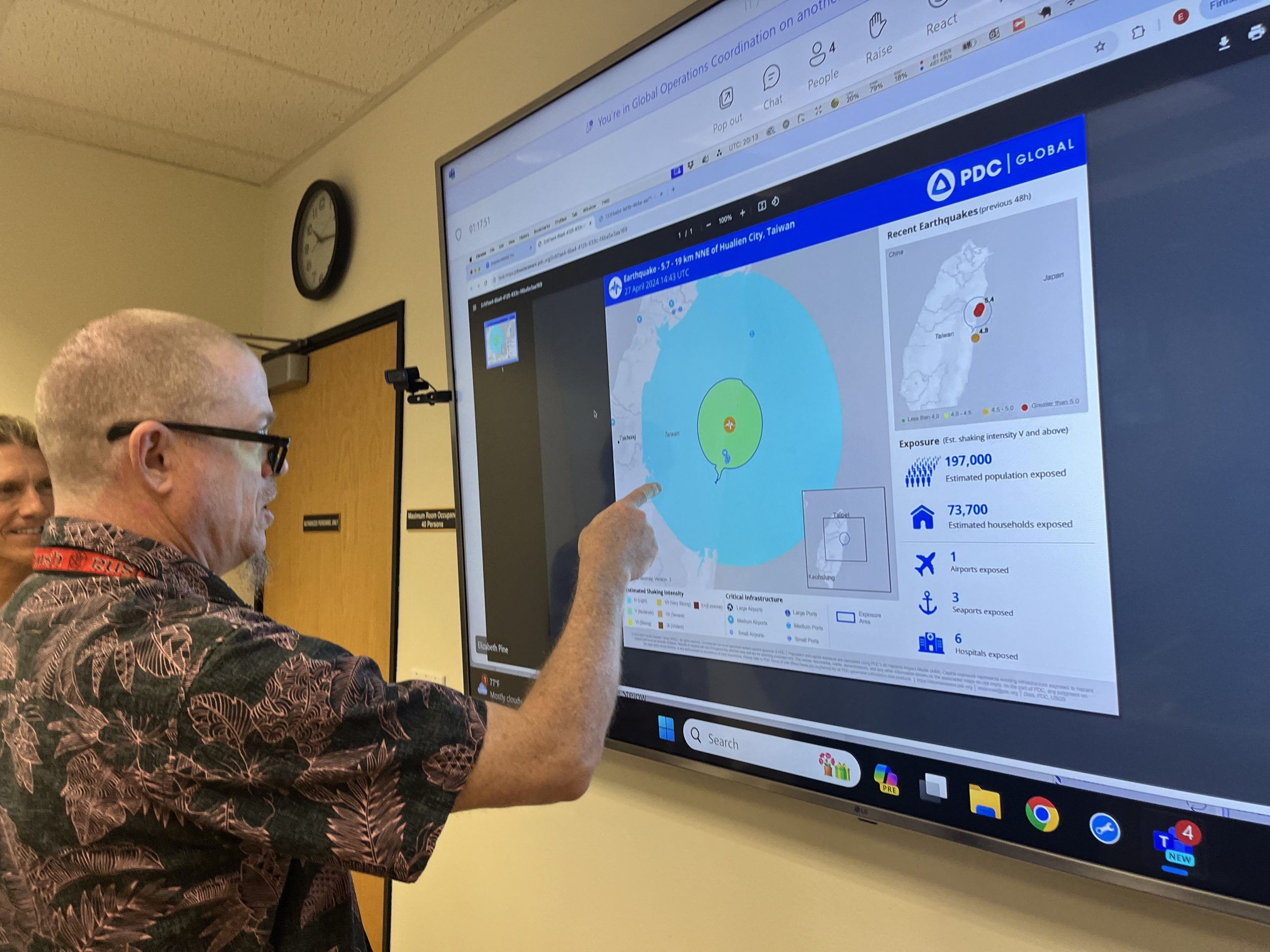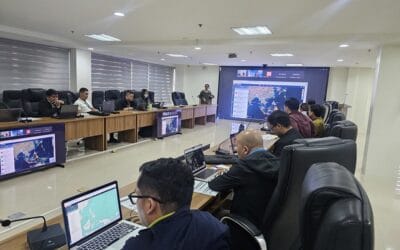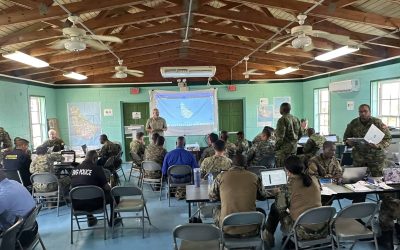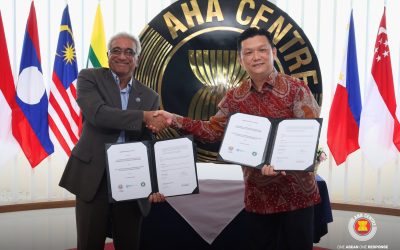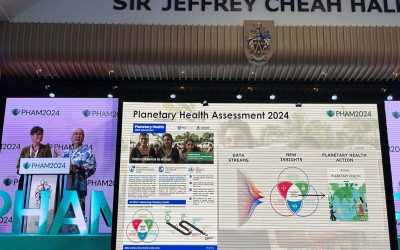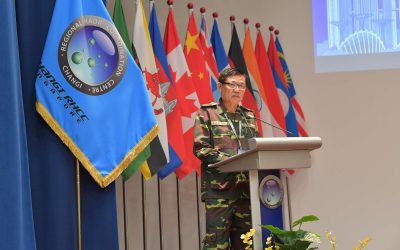Geneva, Switzerland—During the week of May 6-10, 2024, participants at the U.N. Humanitarian Networks and Partnerships Weeks (HNPW) forum in Geneva, Switzerland will get a firsthand look at how PDC is spearheading transformative efforts within the “Early Warnings for All” initiative, including its advanced analytics tools supporting humanitarian efforts. Early Warnings for All is an initiative launched in 2022 by U.N. Secretary-General, António Guterres, which calls for everyone on Earth to be protected from hazardous weather and hazard events through life-saving early warning systems by the end of 2027.
“We are excited to join our colleagues in Geneva at the HNPW forum, many of whom we’ve collaborated with over the years to conceive these innovations. We plan to showcase our latest achievements in multi-hazard early warning, analytics, and real-time impact assessments.”
—PDC Senior Disaster Management Specialist and Response Lead, Todd Bosse
The HNPW forum is a global inter-networking platform—the largest humanitarian event of its kind—that brings together participants from U.N., Member States, nongovernmental organizations, the private sector, military, and academia to solve common challenges in humanitarian preparedness and response.
According to Bosse, PDC has just deployed significant enhancements to its global early warning and disaster risk intelligence platform, DisasterAWARE, to include asset protection and reporting.

“We’ve listened to the needs of our humanitarian partners on the ground who want to receive alerts not only about hazards affecting a geography, but the things that matter most within those areas.”
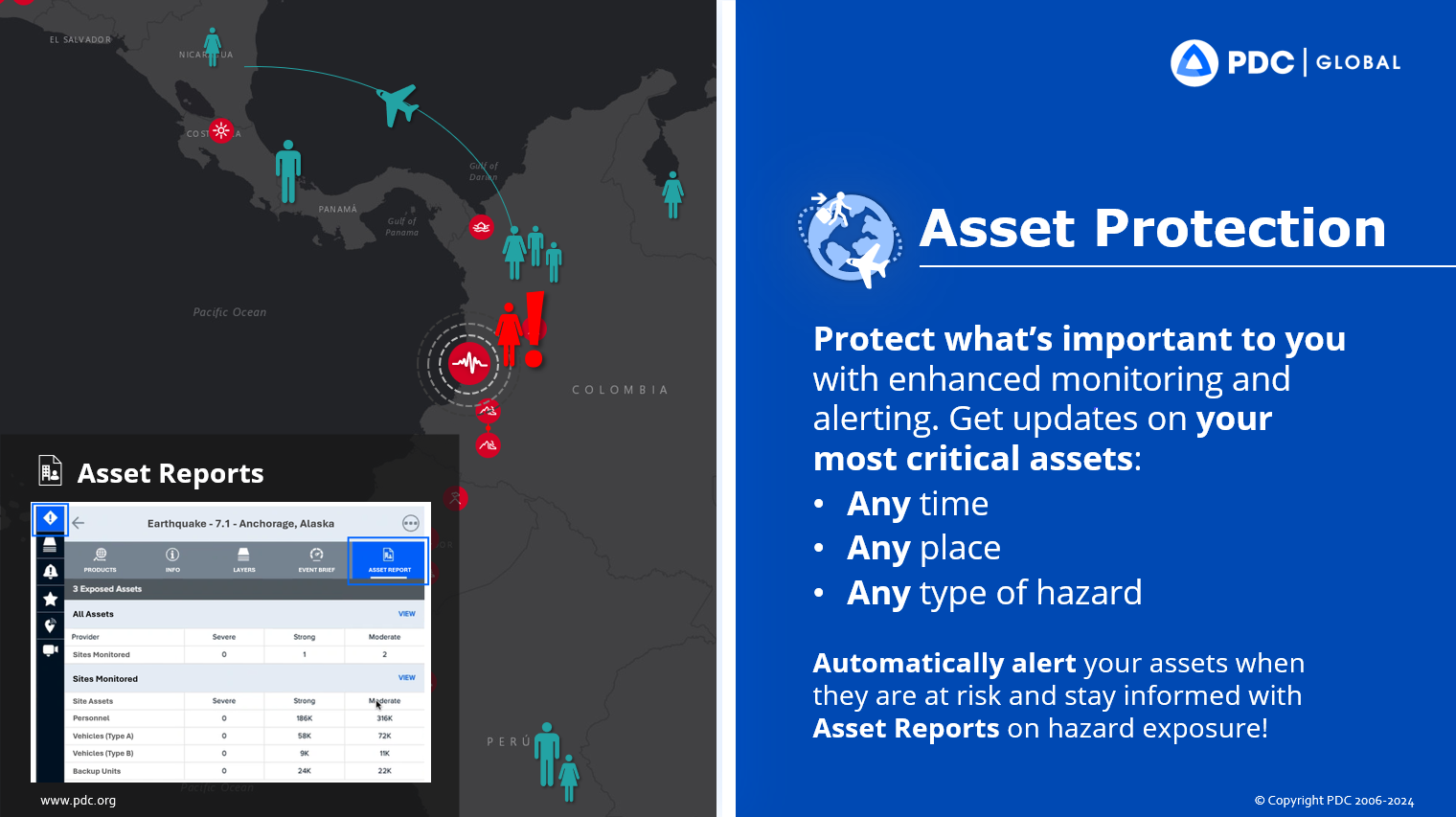 Bosse explained that PDC’s new asset protection tools include the ability to notify individuals who are traveling within affected hazard areas, or send notifications about physical assets and critical infrastructure located within dangers zones. The expanded early warning tools also include built-in asset exposure reports to support humanitarian practitioners with a comprehensive snapshot of the potential impacts to all human and physical assets of concern.
Bosse explained that PDC’s new asset protection tools include the ability to notify individuals who are traveling within affected hazard areas, or send notifications about physical assets and critical infrastructure located within dangers zones. The expanded early warning tools also include built-in asset exposure reports to support humanitarian practitioners with a comprehensive snapshot of the potential impacts to all human and physical assets of concern.
Other capabilities that PDC plans to showcase at HNPW include its automated analytical products—most notably the Joint Analysis of Disaster Exposure (JADE). The JADE product, co-developed by United Nations Office for the Coordination of Humanitarian Affairs (OCHA) and World Food Programme, support all humanitarian partners and was first launched by all three parties as a collaborative effort in 2020.
JADE is currently produced using several manual processes when a large hazard requiring assistance from the international community occurs. With the latest innovations and automation soon to be released, the new JADE product will be available within minutes instead of hours. PDC is also excited to work with partners at HNPW on expanding the geographic extent and hazards covered by JADE.
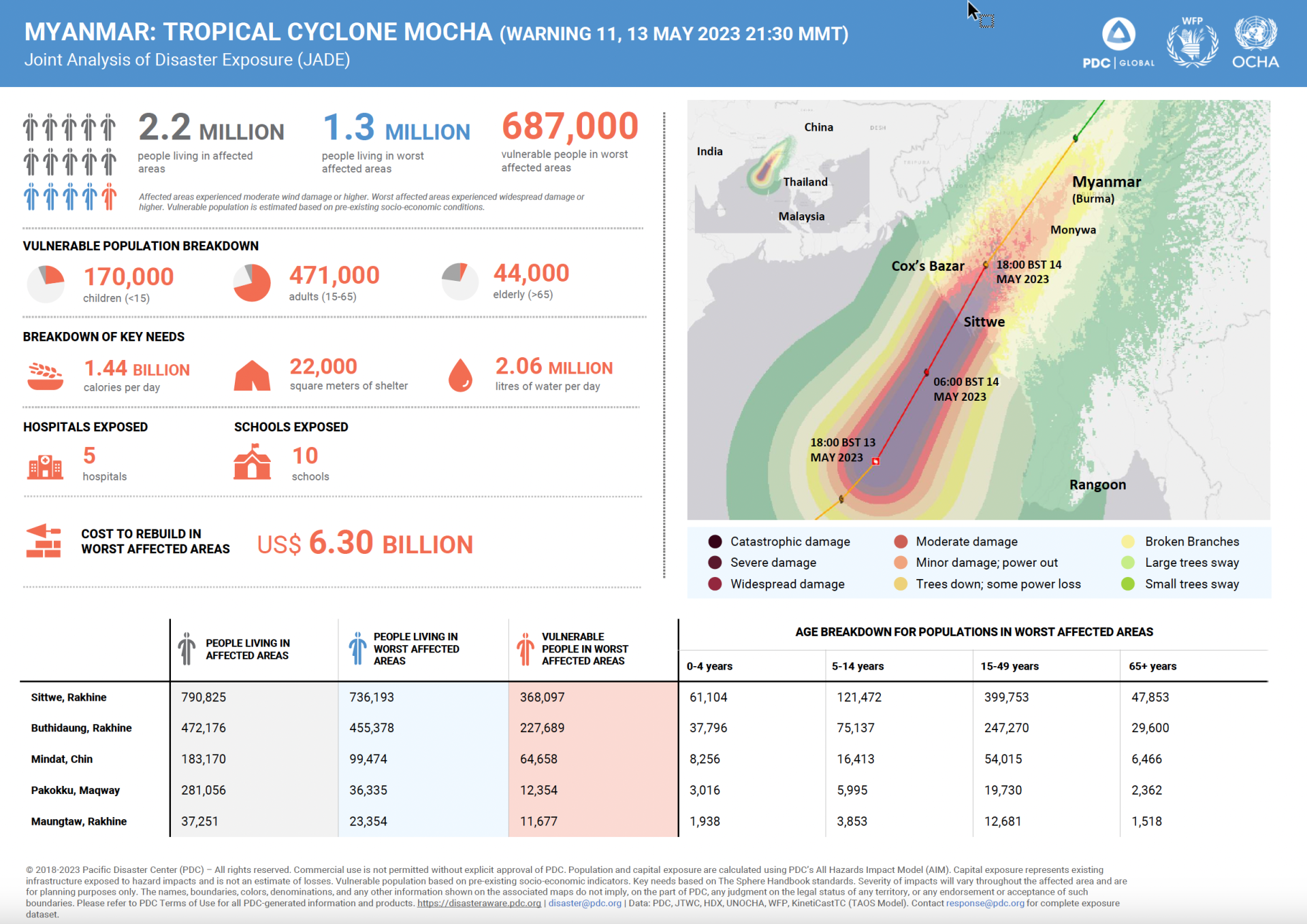
PDC will also demo several other proprietary hazard exposure products it has developed, providing similar insights to humanitarian actors so they have the fastest and most reliable information they need to act quickly to save lives and reduce losses.
As a final achievement, but not the least of them, PDC will showcase its suite of advanced analytics capabilities and products which include its work to help countries anticipate the likelihood of future hazard impacts.
“We’ve broken some exciting new ground in our ability to help countries scale very complex hazard data to the hyper-local level. This will help decision makers anticipate likely impacts to population and infrastructure from hazards such as sea-level rise, or extreme heat for instance. From there, we are able to determine the likelihood of necessary adaptation and help identify potential mitigation measures to help communities build resilience and adapt effectively,” said PDC’s Director of Applied Science Dr. Joseph Green who oversees PDC’s Analytics Lab and hazard modeling and automation science.
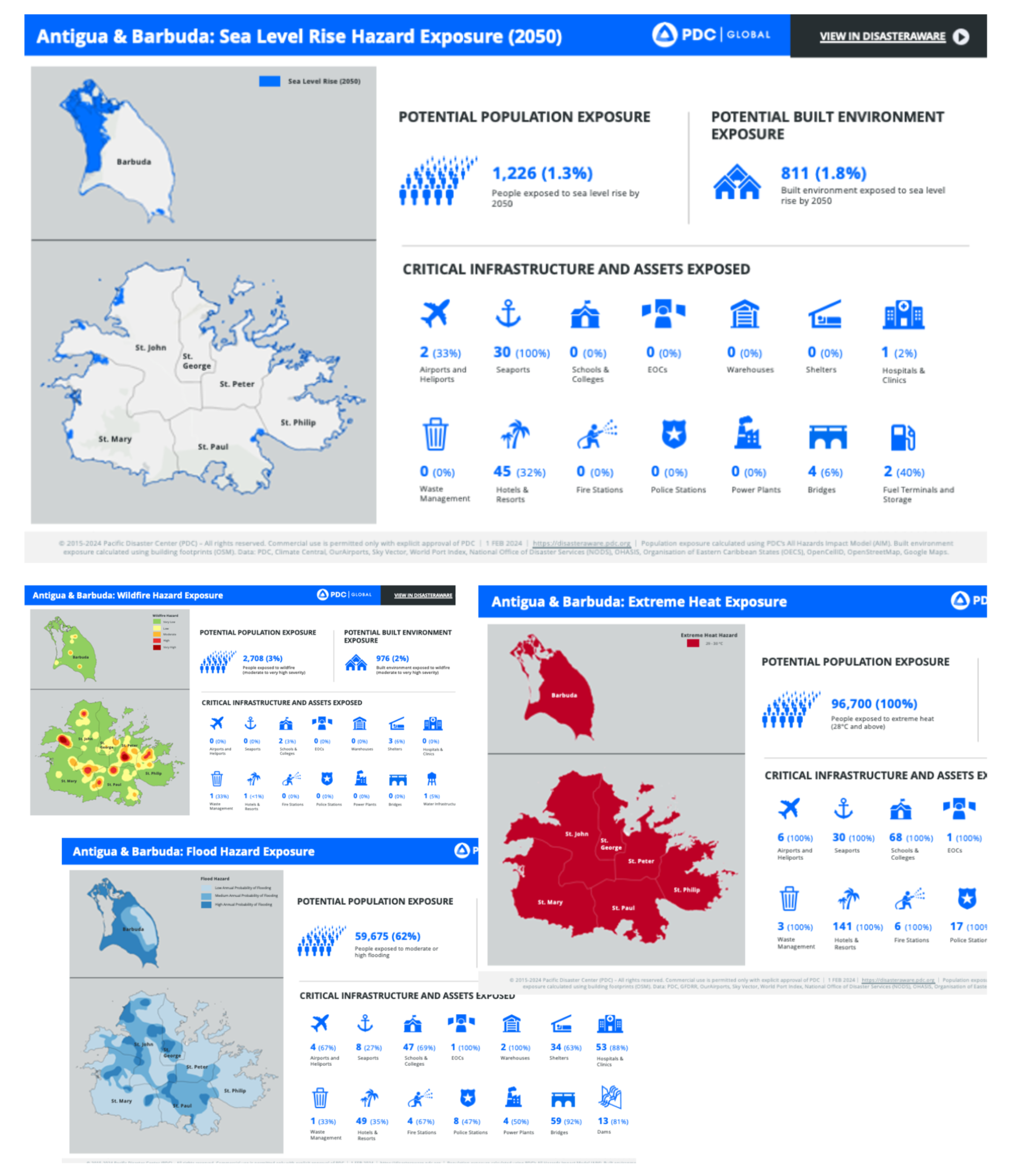 While not in attendance for HNPW, Dr. Green will be convening with other disaster risk management experts to at World Bank’s Understanding Risk Global Forum 2024 from June 16-21 and hosting a session on PDC’s innovative tools to help decision makers better understand natural hazard risks over the long term.
While not in attendance for HNPW, Dr. Green will be convening with other disaster risk management experts to at World Bank’s Understanding Risk Global Forum 2024 from June 16-21 and hosting a session on PDC’s innovative tools to help decision makers better understand natural hazard risks over the long term.
